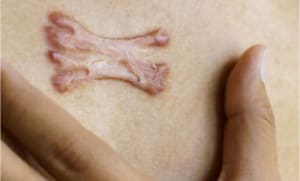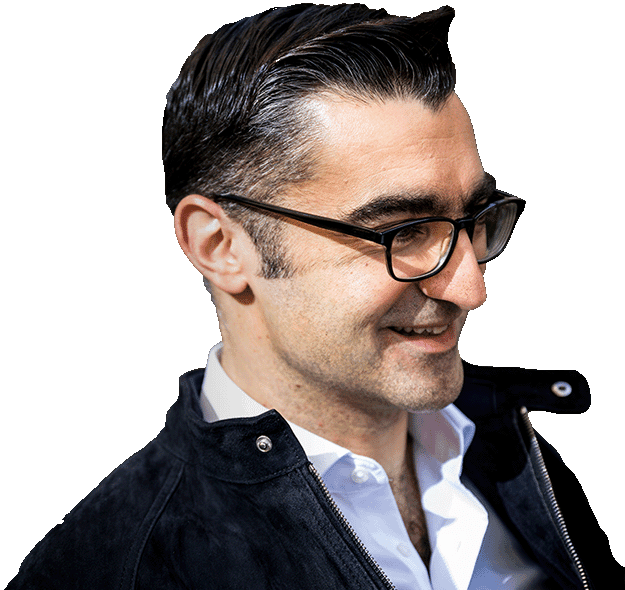Keloid Scar Removal London
Keloid scars can be a source of discomfort and self-consciousness for many people. If you’re looking for keloid scar removal in London, there are several treatment options available to help reduce thick scars and improve skin appearance. Whether caused by surgical incisions, acne scars, burn injuries, body piercings, or ingrown hairs, keloid scar treatment can effectively minimise their size and prevent recurrence.
If you’re seeking keloid scar removal in London, Mr Ioannis Goutos provides the first-class personalised treatment you need without having to concede on safety. He understands the potential risks a keloid scar can lead to, and as one of the best keloid removal surgeons in London, he knows what needs to be done.
Click here, call 07908422412, or email INFO@GOUTOSLONDON.COM to contact Mr Ioannis Goutos and his team of experts to start the process for your keloid surgery.

What Are Keloid Scars?
A keloid scar forms when scar tissue grows excessively beyond the boundaries of an original wound due to an overproduction of collagen during healing. Unlike hypertrophic scars, which remain within the wound area, keloids can continue growing over time. They are more common in darker skin types and typically appear on areas like the upper chest, upper arms, beard area, and ears after minor skin damage.
Keloid Scar Removal Treatments
If you’re considering keloid scar removal in London, there are several effective treatments offered at London clinics by qualified plastic surgeons:
Steroid Injections & Steroid Therapy
A common keloid treatment, steroid injections help flatten keloid scars by reducing blood supply and collagen production. Fewer treatment sessions are required for smaller keloids. The type of steroid treatment and number of steroid injections needed can be discussed with Mr Ioannis Goutos.
Laser Therapy
Laser treatment targets scar tissue while protecting the surrounding skin. This method can also reduce blood vessel formation, flatten bulky scars as well as improve skin tone.
Keloid Removal Surgery (Surgical Excision)
For larger keloids, keloid removal surgery may be necessary. A surgical excision can be performed under a local anaesthetic depending on exact size and location, and patients receive a post-operative care pack for recovery. Although surgical removal is a safe option under the steady hand of a highly skilled plastic surgeon, it is important to discuss everything with your surgeon.
Cryotherapy (Liquid Nitrogen)
Freezing the keloid scar with liquid nitrogen can help shrink the tissue over time. This preventative measure is sometimes combined with other treatments to prevent recurrence.
Preventative Measures & Aftercare
Post-treatment, plastic surgeons recommend avoiding ear piercings and body piercings in high-risk areas. Proper post-operative care ensures the best healing results.
There are many keloid scar treatment options available; the most suitable one for you can be determined by the location, size, and symptoms associated with your keloid scar. This is why the advice of a highly skilled plastic surgeon like Mr Ioannis Goutos can prove invaluable.
Call 07908422412 to book your initial consultation with Mr Ioannis Goutos to discuss your keloid scar needs and see what treatment option may be the most suitable for you.
Choosing the Right Treatment in London
With a variety of keloid scar removal options available, it’s best to consult UK-trained specialists who can assess your skin type and recommend the best treatment options. You can ask all the questions you need, talk about the final price – depending on the surgical procedure, the size of the scar, and any additional treatment sessions required – and understand the keloid scar treatment procedure.
If you’re looking for definitive treatment for keloid scars, book a free consultation with Mr Ioannis Goutos, and start your keloid treatment as soon as possible.
Click here, call 07908422412, or email INFO@GOUTOSLONDON.COM today.
Find Our Clinic
Goutos London
152 Harley Street
London
W1G 7LH
Testimonials
Mr Goutos is delighted to share some of his patient and peer feedback on their experiences of his services.








